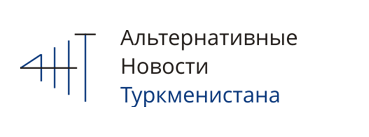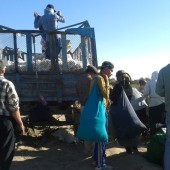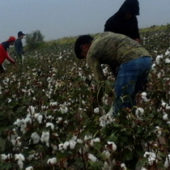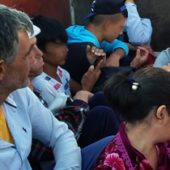October 29, 2014. By Jeff Goldstein, OSF
I got bad news this weekend in two nearly simultaneous emails. One showed my government congratulating the people of Turkmenistan on the anniversary of the country’s independence without making mention of how they still struggle with dictatorship. The second demonstrated the depths of the human rights catastrophe that is today’s Turkmenistan.
The statement by Secretary of State John Kerry and the report by Alternative Turkmenistan News, both issued over the weekend, sharpen a question my colleague Judith Mazdra wrote about previously: Is the United States’ public diplomacy doing enough to support the Obama administration’s declared policy of supporting democracy, human rights, and open society values in Central Asia?
You would doubt it from Secretary Kerry’s statement, written “on behalf of President Obama and the people of the United States.” It congratulated the people of Turkmenistan, applauded 23 years of bilateral cooperation between the United States and Turkmenistan that had helped “to forge a more peaceful and stable region,” and promised to continue to work on expanding trade and business ties and promoting cultural and educational exchanges. To read this, one would think the people of Turkmenistan enjoy open culture and learning.
Until the next message. The report from Alternative Turkmenistan News, Monitoring the Use of Forced Labor in Turkmenistan, came from activists who delivered it at significant personal risk. The report analyzes how tens of thousands of civil servants, including school teachers, doctors, and employees of state-run businesses, are forced to spend the fall picking cotton in abysmal working and living conditions. If they resist, they’ll lose their jobs. In many cases, they are forced to drink ditch water and bathe in irrigation canals.
The report also details how unskilled municipal workers—people like janitors and gardeners, who are easily replaced and would struggle to find alternative employment if fired—are viewed by more senior officials like a forced-labor pool. They are sent to pick cotton or participate in public works projects completely unrelated to their normal duties, and even forced to work in government officials’ homes. These workers get no overtime pay and often must pay out-of-pocket to travel to distant work assignments, all the while knowing that failure to comply will result in immediate joblessness.
The report reminds us that Turkmenistan is one of the most authoritarian countries in the world, an annual feature on Freedom House’s list of the “Worst of the Worst” rights violators. It ranks alongside North Korea and Syria.
Why, when addressing the people—not the state—of Turkmenistan, does the State Department fail to mention democracy, democratization, political or economic reforms, or human rights, concepts it professes to promote? It would be disappointing to think that the State Department believes that U.S. energy and geostrategic interests, such as access to Afghanistan, are so important—and our relations with the Turkmen authorities so fragile—that even mentioning those concepts would be an unacceptable risk. It would be disturbing, however, to think that the omission might reflect a lack of urgency about democracy and human rights from the people responsible for Secretary Kerry’s statement.




